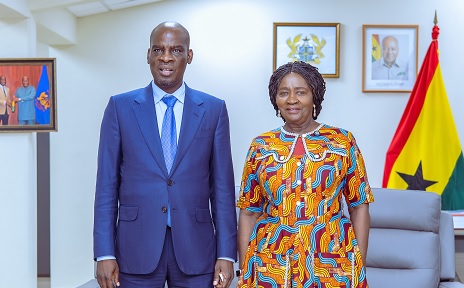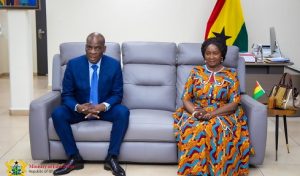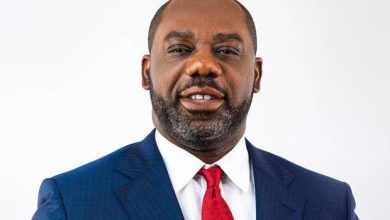
The Ministry of Education is embarking on broad reforms intended to expand and intensify Science and Mathematics education in the country, increase access to tertiary education through the establishment of new public universities, and enhance the role of the National Schools Inspectorate Authority to enforce discipline in schools.
The concept, according to the sector minister, Haruna Iddrisu, is to revolutionise the education ecosystem for enhanced outcomes that will impact the broader development efforts of the country.
It includes a review of the education curriculum for Kindergarten to Primary Six and other ongoing interventions to chart a new path for Ghana’s education.
Mr Iddrisu said the ministry, for instance, would establish a “dedicated university for the Bono Region in Kintampo, with campuses in two other communities, as well as three additional technical universities in three of the Savannah, North East, Oti and Western North regions.
“These initiatives are part of our broader plan,” he said in Accra yesterday when the Vice-President, Prof. Naana Jane Opoku-Agyemang, visited the ministry to interact with the minister and heads of agencies of the ministry.
The Vice-President, a former Vice-Chancellor of the University of Cape Coast and one-time Minister of Education, currently has direct oversight responsibility for the ministries of Education, Health, and Gender, Children and Social Protection.
“We intend to revolutionise STEM (Science, Technology, Engineering and Mathematics) education with the acquisition of additional STEM equipment to live up to your vision that the future is about STEM education,” Mr Iddrisu said, adding that the ministry was currently reviewing the education curriculum from Kindergarten to Primary Six, with a strong emphasis on introducing Electronics, Robotics, Coding, and Artificial Intelligence into the very formative stages of young learners.
Indiscipline in schools
The minister expressed concern about recent cases of indiscipline in schools, some of them expressed in crude violence that involved dangerous weapons such as guns and sharp objects, saying this was “very unGhanaian. This is unacceptable in our country”.

“We are, therefore, emphasising a stronger role for the National Schools Inspectorate Authority and encouraging schools to conduct random searches to ensure that students do not bring such weapons to campus,” he said.
He said the government should do everything possible to sustain the No-Fees Stress policy introduced this year for first-year students of tertiary education institutions.
Vice-President advocates empathy
Prof. Opoku-Agyemang reaffirmed the government’s commitment to long-term investment in infrastructure and innovative solutions to ensure expanding access to quality schools.
She acknowledged the enormous pressure that agencies faced from parents and students during the senior high school placement protocols, and urged the ministry and its agencies to exercise patience and empathy in communicating with the public.
The Vice-President said school placement had become one of the most contentious issues in the country’s education system, often triggering anxiety for families.
“I know you are currently handling school placements, and many people are besieging your offices, homes and phones.
Let us politely explain the situation to them.
What matters is how we explain the situation to people.
If we are clear, polite and transparent, even when the outcome is not what they expect, it will help to reduce tensions,” she said.
She recalled past interventions such as the E-block project, designed to expand and increase the number of senior high schools, especially in underserved communities.
She said, although not all of the blocks were completed, the government remained committed to building more schools, reducing congestion in existing ones and increasing opportunities for all.
Indiscipline
Addressing the rise in indiscipline in schools, Prof. Opoku-Agyemang called for a collective responsibility among parents, teachers and society to maintain order and nurture positive values among students.
“Discipline is everyone’s responsibility. We raise our children in the home and sometimes speak in ways that make young people feel certain behaviours are acceptable when they are not.
We must all be mindful and support them to understand that some behaviours are harmful, not only to society but to themselves,” she said.
The Vice-President emphasised that schools should never become battlegrounds or unsafe spaces.
He stressed the need for teachers to be supported in their efforts to enforce discipline in schools, adding that discipline was not about instilling fear but about ensuring a conducive and peaceful learning environment.
Highlighting social intervention programmes, the Vice-President extolled the impact of the No-Fee Stress policy and the Student Loan Plus scheme.
“With this initiative, once you have your admission letter, you can access support to register,” he explained.
“Now, first-year students can have peace of mind. With GETFund support, we hope to move toward proper means-testing so that students who need more support can get it,” Prof. Opoku-Agyemang added.
The Vice-President acknowledged the strain of education financing on the national budget, but called for stronger economic growth to increase resources.
She urged the agencies under the ministry to work collaboratively rather than in silos.
“There is so much talent in each agency that we can share and learn from. Let us collapse the silos and share expertise so that the results are positive for everyone; that is what matters most,” she said.
The visit
The visit was part of the Vice-President’s efforts to support the various ministries, departments and agencies in the country.

The visit to the Ministry of Education came after an earlier one to the Ministry of Health.
The Vice-President was accompanied by the staff at her office, including the Chief of Staff, Alex Percival Segbefia; the Head of Administration, Alberta Graham; the Presidential Staffer and Special Aide to the Vice-President, Prof. Theresah Ennim; Policy Advisors, Economics, Prof. Sharif Mahmud Khalid and Dr Hamza Zakaria; and Policy Advisor, Finance, Mansa Amoa Awuah.
The delegation was received by the Minister of Education, Mr Iddrisu; the Deputy Minister, Dr Clement Appak, and the various directors and heads of agencies and departments under the ministry.



